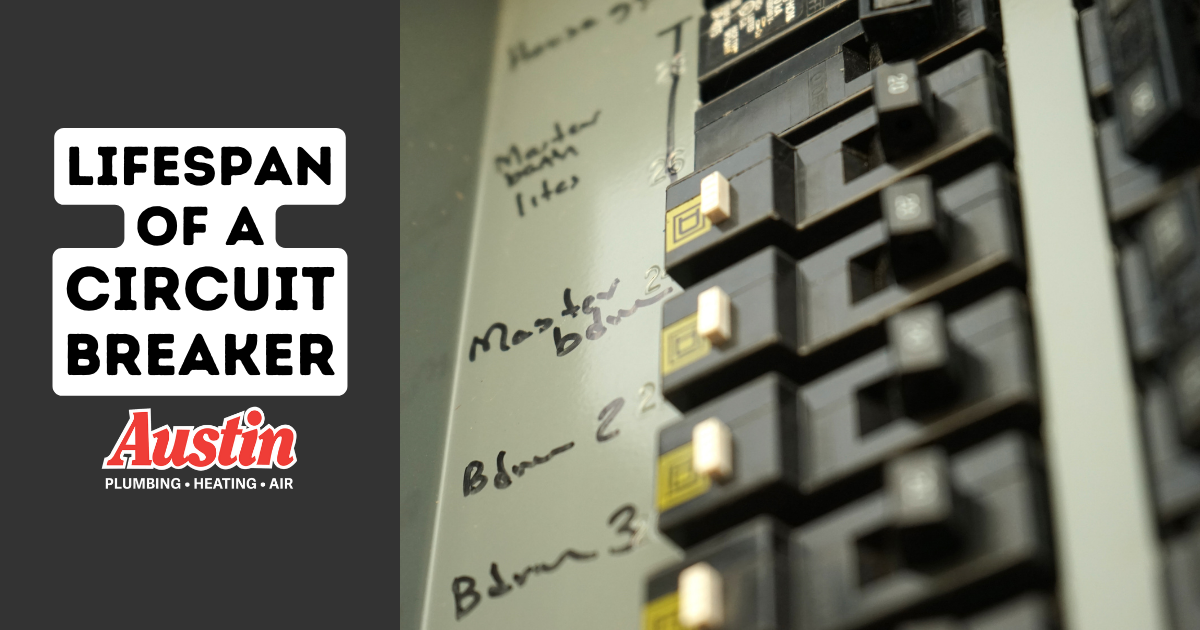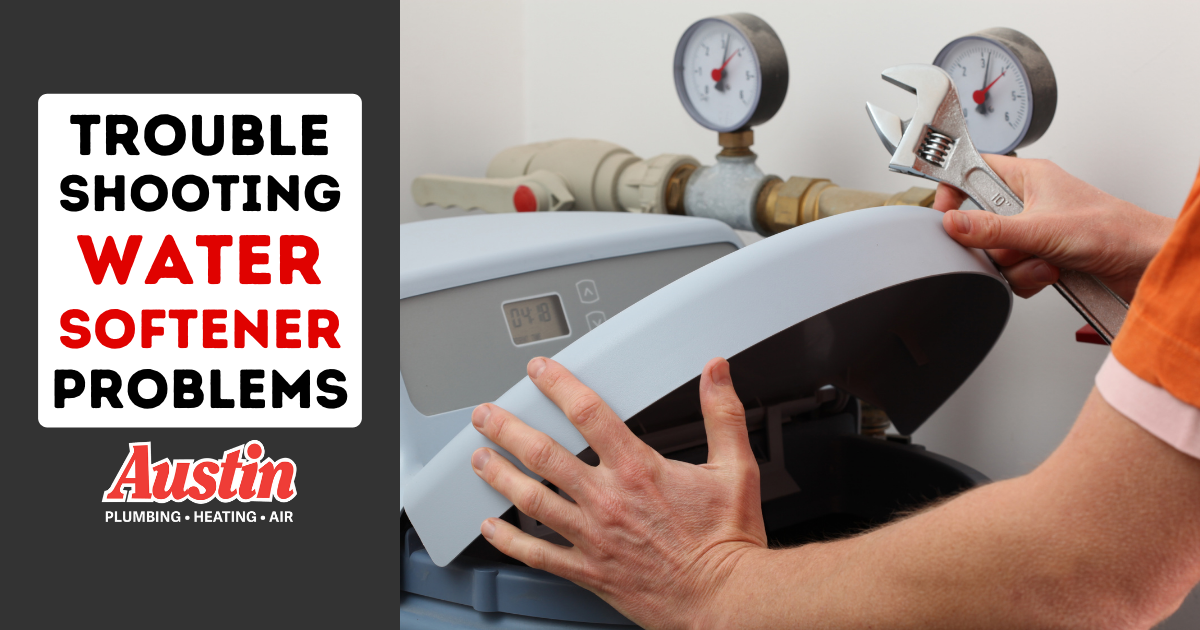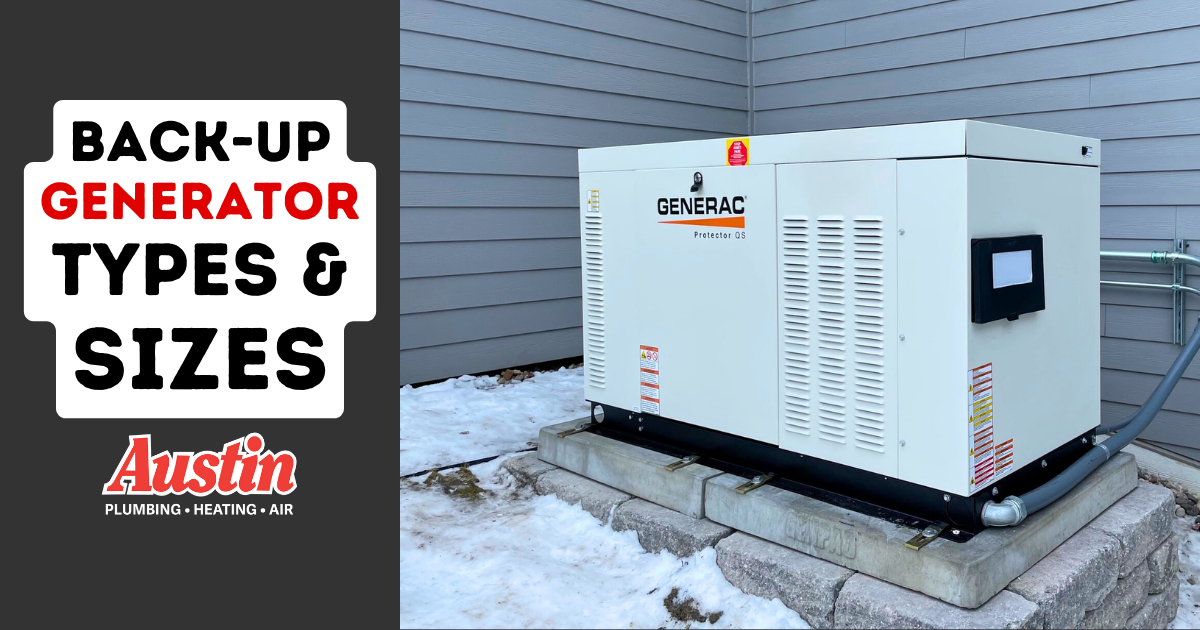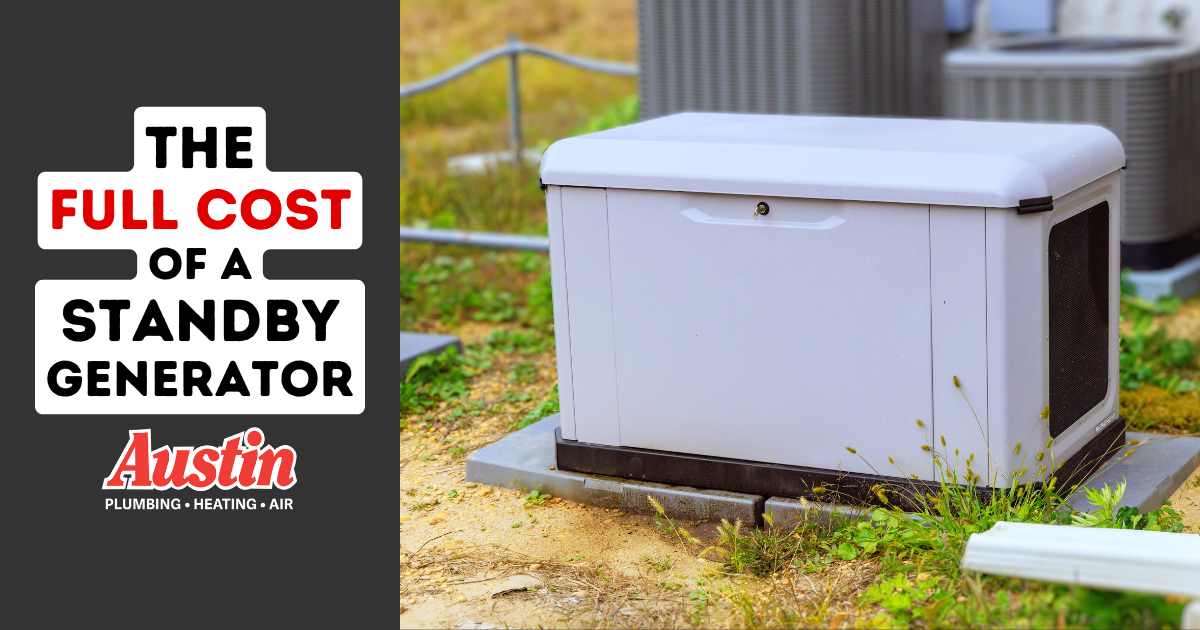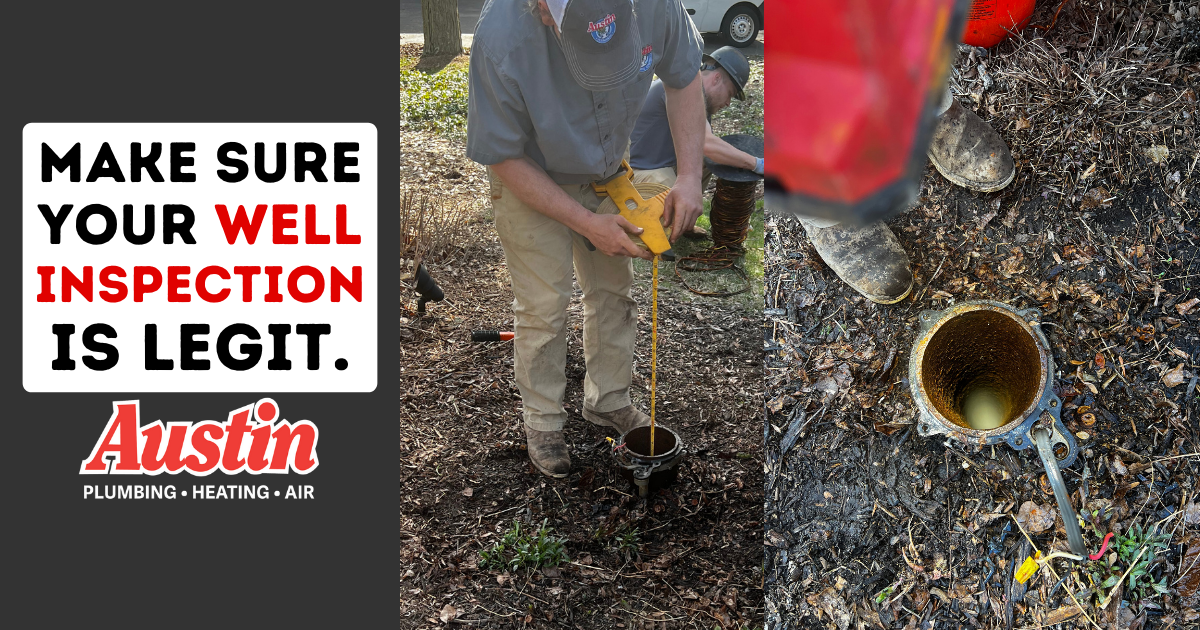10 Signs Your AC Needs a Repair (Or Replacement)
Expanded warning signs your AC system is asking for a check-up (or maybe a vacation!) from our Master Tradesman.
It goes without saying that you usually get, well, a feeling when your air conditioner isn’t happy with you. And by that point, you’re not happy with it, either.
Normally, we’d start a guide like this with troubleshooting steps. But this time’s a little different. Here’s to the ones that pretty well know something’s wrong with your AC—you’re just not sure what!
1. Feeling the Heat (Literally)
Imagine this: you come home after a long, hot day, dreaming of cool air and blissful relaxation. Instead, you’re met with a blast of lukewarm air from your air conditioner. It’s like your unit is throwing a tantrum, refusing to cooperate and keep your home comfortable. This lack of cool air could be a sign of several issues:
A weak compressor
- This is the heart of your air conditioner, responsible for circulating refrigerant and creating cool air. If it’s weak, it won’t be able to pump enough refrigerant, leading to lukewarm air. Imagine a tired heart struggling to pump blood – that’s what a weak compressor is like for your AC.
Low refrigerant levels
- Refrigerant is the coolant that absorbs heat from your home’s air. If levels are low, it won’t be able to absorb enough heat, resulting in lukewarm air. Think of it like having less water in your car radiator – it won’t be able to cool the engine effectively.
Clogged air filter
- The pathways that deliver cool air throughout your home are called your duct system. Protecting your home (and the duct system) from dust and debris is the AC filter (also called the furnace filter). If this air filter is clogged, it will cause airflow to be restricted, leading to lukewarm air in some rooms and/or even a complete lack of airflow. Imagine trying to breathe through a plugged straw – that’s how your air conditioner struggles with clogged filters.
2. Strange Sounds
Your AC should purr contentedly, not sound like a deranged orchestra. Grinding, banging, or squealing noises are like warning sirens from your unit, indicating potential problems:
Loose parts
- Imagine a car with loose bolts and rattling components – that’s what your AC sounds like with loose parts. These can cause damage to other components if left unchecked.
Failing motors
- Just like a car engine, your AC has motors that power various functions. If they’re failing, they’ll create unusual noises and could lead to complete system breakdown.
Other internal issues
- Whistling, clanging, or any other strange noises could point to other internal problems like worn bearings, faulty valves, or even refrigerant leaks. Ignoring these sounds is like ignoring the check engine light in your car – it could lead to costly repairs down the line.
3. Musty Odors
Imagine the unpleasant surprise of turning on your AC and being greeted by a musty, moldy smell. This is not only unpleasant but also a potential health hazard:
Mold growth
- This can occur inside the AC unit due to moisture and lack of proper cleaning. Mold spores can trigger allergies and respiratory problems, especially for those with sensitivities.
Mildew
- Similar to mold, mildew thrives in damp environments and can create a musty odor. It can also damage your AC unit and furnishings if left unchecked.
4. Feeling Damp and Clammy
High humidity levels make your home feel like a swamp, and it’s not just uncomfortable – it can also damage your belongings:
Inefficient moisture removal
Your AC is designed to remove moisture from the air along with heat. If it’s not doing this effectively, humidity levels will rise, making your home feel muggy and uncomfortable.
Refrigerant leak
A refrigerant leak can not only affect cooling but also lead to increased humidity levels, as the leaking refrigerant absorbs moisture from the air.
Wrong size unit
An AC unit that’s too small for your home won’t be able to keep up with the cooling demand, leading to both insufficient cooling and high humidity. It’s like trying to cool a large house with a tiny fan – it just won’t work efficiently.
5. On-Again, Off-Again Party
Does your AC act like a party animal, constantly switching on and off? This erratic behavior can be disruptive and may potentially point to deeper issues:
Faulty thermostat
- The thermostat is like the brain of your AC system, regulating temperature and telling the unit when to cycle on and off. If it’s faulty, it can send incorrect signals, leading to this on-again, off-again behavior.
Dirty air filter
- A clogged air filter restricts airflow, making it harder for the AC to cool your home. This can cause the unit to cycle on and off more frequently in an attempt to compensate.
Oversized unit
- An AC unit that’s too large for your home will cool the space too quickly, reaching the desired temperature rapidly. This leads to short cooling cycles followed by long periods of inactivity, creating an uncomfortable temperature swing.
6. Brrr…Bills!
When your energy bills suddenly spike for no apparent reason, your AC unit could be the culprit:
Inefficient operation
- An AC unit that’s old, malfunctioning, or simply not the right size for your home will have to work harder to achieve the desired temperature. This extra effort translates to higher energy consumption and, consequently, inflated bills. Imagine driving an old, gas-guzzling car uphill – that’s how inefficient air conditioners operate.
Dirty components
- Dust and debris buildup on coils and other components can reduce their efficiency, forcing the AC to work harder and use more energy. Think of a dirty air filter restricting airflow and making your car engine work overtime.
Refrigerant leaks
- Not only do refrigerant leaks affect cooling capacity, but they can also lead to higher energy bills. As the refrigerant level drops, the AC has to work harder to compensate, increasing energy consumption. Imagine a leaky tire on your car – it takes more effort to maintain speed, draining more fuel.
7. Uneven Temperatures
Do you find yourself bundled up in one room while sweating it out in another? Uneven temperatures within your home can indicate several issues:
Ductwork problems
- Leaky, blocked, or poorly insulated ducts can prevent cool air from reaching all areas of your home. This creates hot and cold zones, making some rooms uncomfortably warm while others remain cool. Imagine having swiss cheese for air ducts – cool air escapes through the holes, leaving some rooms chilly.
Poor insulation
- Inadequate insulation allows heat from the outside to enter your home more easily, putting extra strain on your AC to cool specific areas. This can lead to uneven temperatures and higher energy bills. Think of your house as a poorly insulated thermos – it struggles to keep things cool.
Failing AC system
- In severe cases, uneven temperatures could be a sign of a failing compressor, refrigerant leaks, or other major issues within the AC system itself. Addressing these promptly is crucial to prevent further damage and discomfort.
8. Water, Water Everywhere (Except Where It Should Be)
Water leaks around your AC unit are never a good sign, and they can stem from various issues:
Refrigerant leak
- A leak in the refrigerant line can cause condensation to form and drip around the unit. Not only does this waste refrigerant, but it can also create puddles or even water damage if left unchecked.
Clogged condensate line
- This line drains away moisture collected during the cooling process. If it’s clogged, water can back up and leak from the unit, potentially damaging components and surrounding areas. Imagine a clogged drain in your sink overflowing – that’s what happens with a clogged condensate line.
Faulty component
- Damaged drain pans, cracked coils, or other faulty components can also lead to water leaks around your AC unit. Ignoring these leaks can lead to expensive repairs and potential mold growth.
9. Age Ain’t Nothing But a Number (Except for Your AC)
Just like any appliance, your AC unit has a lifespan. While regular maintenance can extend its life, there comes a time when replacement becomes more cost-effective:
Decreased efficiency
- Older AC units are inherently less efficient than newer models, using more energy to achieve the same cooling capacity. Over time, this inefficiency translates to higher energy bills and reduced environmental impact.
Frequent repairs
- As your AC ages, it becomes more prone to breakdowns and requires more frequent repairs. These mounting repair costs can outweigh the potential savings of keeping an old unit.
Lack of replacement parts
- For very old AC models, finding replacement parts can become difficult or even impossible. This can leave you stranded if a critical component fails, forcing you to replace the entire unit anyway.
10. No Cool Air, No Matter What
This one’s pretty straightforward. If your AC completely refuses to produce any cool air, regardless of the settings or thermostat adjustments, it’s definitely time to call in the professionals:
Major system failure
- This could be due to a compressor burnout, refrigerant leaks, electrical issues, or other significant problems within the AC system. Ignoring this complete failure will only worsen the situation and make repairs more expensive.
Safety hazards
- Depending on the nature of the failure, a non-functioning AC unit could pose safety hazards, such as electrical problems or refrigerant leaks. It’s crucial to address these issues promptly to ensure the safety of your household.
Qualified HVAC Technicians, Guaranteed ASAP Service
Remember, early detection and intervention are key to maintaining a healthy and efficient AC unit. By addressing these warning signs promptly, you can avoid costly repairs, ensure optimal comfort, and extend the lifespan of your AC system.
Don’t hesitate to book a same-day AC service if you notice any of these issues, and enjoy a cool and comfortable home throughout the summer!

